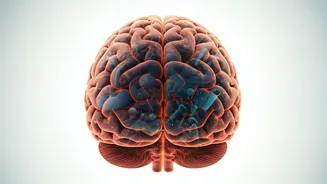Understanding Dementia Risk
Dementia, a term encompassing various conditions affecting cognitive functions like memory, thinking, and reasoning, poses a growing public health concern.
While factors like genetics contribute to the risk, lifestyle choices, particularly physical inactivity, are increasingly recognized as significant contributors. As people age, the likelihood of developing dementia rises. However, the good news is that proactive steps, especially incorporating regular exercise, can play a vital role in mitigating the risk. Recognizing early signs, seeking timely medical advice, and adopting brain-healthy habits are crucial components of a comprehensive approach to dementia prevention. This proactive stance empowers individuals to take control of their cognitive well-being and potentially live fuller, more independent lives for longer.
Aerobic Exercise Benefits
Aerobic exercise, often called cardio, involves activities that elevate your heart rate and improve blood flow. Examples include brisk walking, jogging, cycling, swimming, and dancing. Regular participation in aerobic exercise has been shown to boost brain health in several ways. It increases blood flow to the brain, delivering more oxygen and nutrients essential for optimal brain function. Furthermore, aerobic exercise can stimulate the release of brain-derived neurotrophic factor (BDNF), a protein vital for the growth and survival of brain cells. This process supports neurogenesis, the creation of new brain cells, and strengthens existing connections. Aim for at least 150 minutes of moderate-intensity aerobic exercise or 75 minutes of vigorous-intensity exercise per week, spreading it throughout the week for maximum benefit. Consistency is key, so find activities you enjoy to stay motivated and make exercise a sustainable part of your routine. Consider joining a walking club, listening to music while jogging, or finding other enjoyable ways to make cardio a regular habit.
Strength Training Routines
Strength training, also known as resistance training, focuses on building muscle strength and endurance. This includes lifting weights, using resistance bands, or engaging in bodyweight exercises like push-ups and squats. Although often associated with physical fitness, strength training also provides important benefits for brain health. It helps improve cognitive function, and promotes neuroplasticity, the brain's ability to adapt and reorganize itself. Strength training can also enhance mood, reduce stress, and improve sleep, indirectly benefiting cognitive function. Aim to incorporate strength training exercises at least two times per week, working all major muscle groups. Start with manageable weights or resistance levels and gradually increase them as you get stronger. Proper form is crucial to prevent injuries. Consider consulting a fitness professional to learn safe and effective techniques. Remember to combine strength training with other types of exercises for comprehensive benefits.
Flexibility and Balance Work
Flexibility and balance exercises, like yoga, tai chi, and stretching, are often overlooked but contribute significantly to overall well-being and brain health. They help improve blood circulation, reduce stress, and increase range of motion, positively influencing cognitive function. Yoga and tai chi, in particular, combine physical postures with mindfulness and breathing techniques, which can enhance focus, memory, and attention. These practices also promote relaxation and reduce anxiety, creating a more conducive environment for optimal brain performance. Additionally, regular balance exercises, like standing on one leg or using a balance board, can improve stability and coordination, reducing the risk of falls, particularly as you age. Incorporate flexibility and balance exercises into your routine at least two to three times per week. Even simple stretches performed daily can make a difference. Consider joining a yoga or tai chi class to learn proper techniques and benefit from the guidance of an instructor.
Mind-Body Connections
Integrating mind-body exercises, such as meditation and mindfulness practices, offers a unique approach to brain health. These practices focus on cultivating mental awareness, reducing stress, and enhancing cognitive function. Meditation can help improve focus, attention, and memory. Mindfulness practices, which involve paying attention to the present moment without judgment, can reduce anxiety and improve emotional regulation. These practices can also lower the risk factors associated with cognitive decline. Practicing these techniques can be as simple as dedicating a few minutes each day to mindful breathing exercises or guided meditation. Explore online resources, apps, or local classes to learn different techniques and incorporate them into your routine. Consistent practice is key to experiencing the benefits. By combining physical exercise with mind-body practices, you create a holistic approach to brain health, promoting both physical and mental well-being.
Making It a Habit
Consistency is vital to maximizing the cognitive benefits of exercise. Establishing a sustainable exercise routine involves setting realistic goals, creating a schedule, and finding activities you enjoy. Start by identifying your current fitness level and setting small, achievable goals. Gradually increase the intensity and duration of your workouts as you progress. Schedule exercise sessions into your week, just like any other important appointment. Treat these times as non-negotiable commitments to your health. Find activities you enjoy. This will keep you motivated. Consider joining a gym or fitness class, or working out with a friend or family member for social support. Track your progress to stay motivated. Celebrate your accomplishments along the way. Remember, even small amounts of physical activity are beneficial. Aim for regular exercise to protect your cognitive function and overall health.












